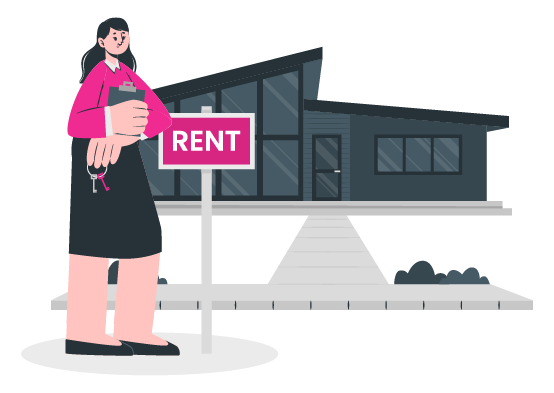Renting in Ireland has become increasingly challenging in recent years, with rising prices and limited availability making it difficult for many to secure suitable accommodation. Fortunately, several government schemes are in place to help renters and low-income families access safe, affordable housing. Whether you are new to the rental market or facing financial difficulty, understanding the government rental schemes Ireland offers can make all the difference.
This guide breaks down the top housing assistance programs Ireland provides, helping you navigate your options and make informed decisions.
Housing Assistance Payment (HAP)
The Housing Assistance Payment, commonly known as HAP, is one of the most well-known rent support schemes Ireland has developed to support low-income individuals and families. Under this government scheme, local authorities pay landlords directly on behalf of tenants. The tenant, in turn, pays a contribution based on their income.
Who can apply?
- Anyone with a long-term housing need
- Applicants must be on the local authority housing list
- Income thresholds vary depending on location and family size
Benefits of HAP:
- Offers financial relief by covering a significant portion of rent
- Provides security as long as tenants meet their contribution
- Encourages tenants to find accommodation in the private market
HAP also allows recipients to work without losing their eligibility, making it ideal for those trying to gain financial independence while still needing rental support.
Rental Accommodation Scheme (RAS)
RAS is another key part of Ireland’s government rental schemes, created to support people who have been receiving Rent Supplement for over 18 months and have a long-term housing need. Unlike HAP, tenants are housed under a formal tenancy agreement between the landlord and the local authority.
Key features:
- Local authorities manage the agreement, offering greater stability
- Tenants usually pay a differential rent based on their income
- RAS properties are often inspected to ensure proper living standards
RAS is ideal for individuals who need more permanent housing but are not yet eligible for social housing. It bridges the gap between temporary support and long-term solutions.
Cost Rental Scheme
One of the more recent innovations in housing assistance programs Ireland has introduced is the Cost Rental Scheme. This programme offers rental homes at prices significantly below open market rates. These rents are calculated based on the actual cost of building and maintaining the property, not market demand.
Who qualifies?
- Middle-income earners who do not qualify for social housing but cannot afford market rents
- Applicants must meet income thresholds, typically around €66,000 or lower depending on location
Why it matters:
- Offers long-term rental security with stable pricing
- Aims to develop a more balanced rental sector
- Supports working individuals and families in urban centres where rent is highest
The Cost Rental Scheme is part of the government’s broader Housing for All strategy, which seeks to create a fairer and more accessible housing system across the country.
Rent Supplement
Before the introduction of HAP, Rent Supplement was the primary rent support scheme Ireland used to assist people in private rented accommodation. While it is now being phased out in many areas, it still plays a role for people who need short-term help.
Ideal for:
- Those temporarily out of work
- People in sudden financial distress
Applicants must undergo a means test, and their housing must meet specific criteria. However, Rent Supplement is not suitable for people with a long-term housing need, as they are encouraged to apply for HAP or RAS instead.
Local Authority Housing Supports
While not strictly rental schemes, local authorities also offer a range of housing assistance programs Ireland residents can access through their local councils. These include:
- Social housing waiting lists for those in long-term need
- Emergency accommodation for homeless individuals and families
- Approved Housing Bodies (AHBs) who work with councils to provide secure housing
Many of these supports are integrated with other government schemes, ensuring that individuals have pathways from temporary assistance to stable, long-term housing.
How to Apply for These Schemes
Most of these government schemes require applicants to first register with their local authority. Here is a general outline of the process:
- Check your eligibility based on income, housing need, and family status
- Submit a housing application through your local city or county council
- Provide documentation including ID, proof of income, and current living situation
- Wait for assessment and placement on the appropriate scheme
Each scheme has its own criteria and procedures, so it is best to consult directly with your local authority or visit trusted platforms like FindQo.ie to learn more about available rental properties and housing supports.
Why These Government Schemes Matter
Ireland’s housing crisis has made it increasingly difficult for many to find affordable rental homes. By offering structured support, these government rental schemes Ireland has implemented provide a crucial safety net. They not only reduce financial pressure but also support housing stability, social inclusion, and independence.
These rent support schemes Ireland offers are not just about saving money. They are about giving people dignity, peace of mind, and a foundation to build their lives.
Find the Right Scheme for You

Navigating Ireland’s government schemes does not have to be overwhelming. Whether you need short-term support or a long-term housing solution, there are programmes available to help.
Visit FindQo.ie today to explore rental listings across Ireland and connect with estate agents who understand the rental support system. Our platform helps you find properties that suit your budget and eligibility, with tools to simplify your search.
Take the next step. Find the rental support that fits your life. Start now on FindQo.ie.

